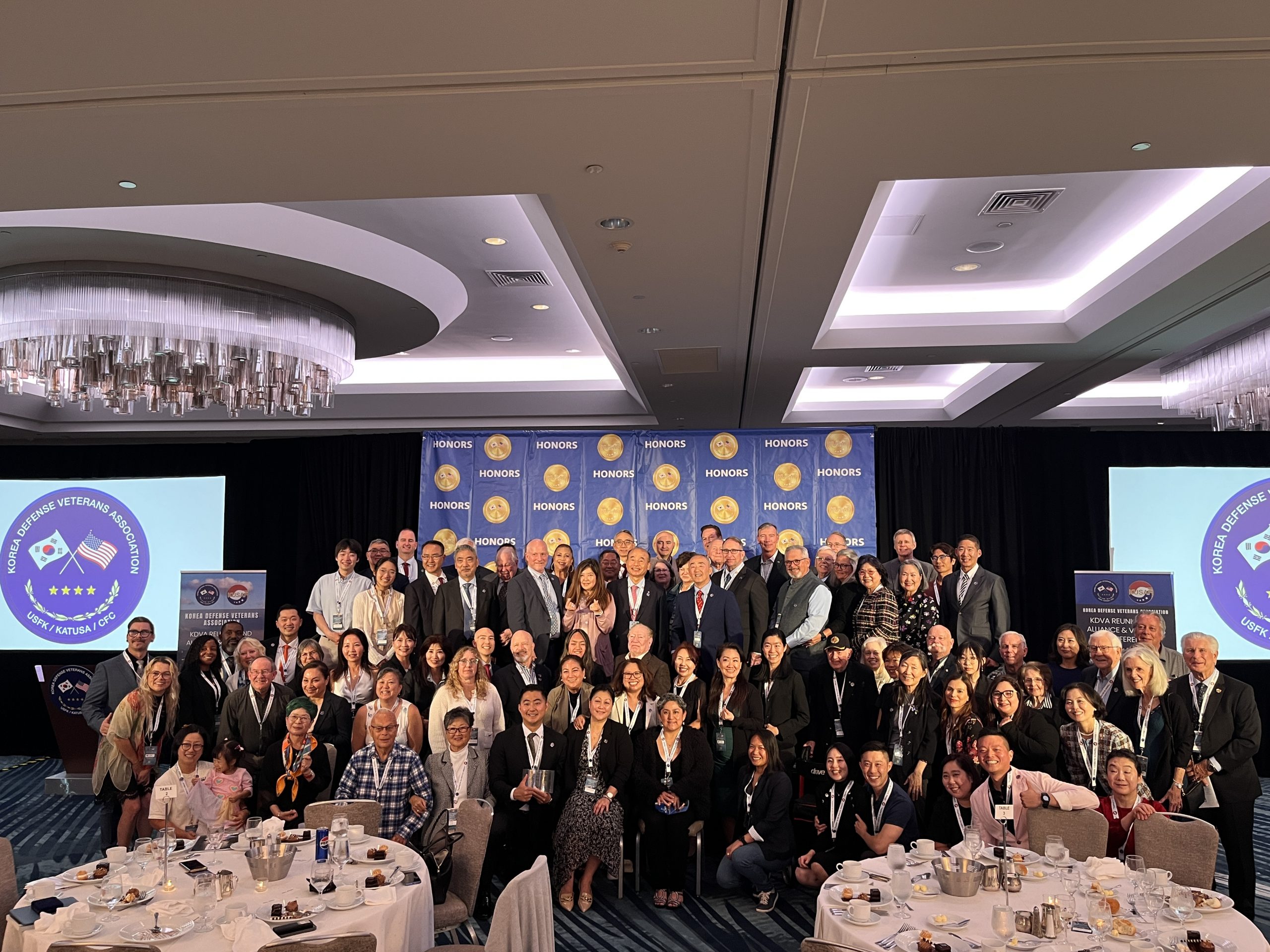53,000. That’s the number of members in the Korea Defense Veterans Association (KDVA), a group bound by one shared experience — service in Korea. But KDVA is far more than a veterans’ club; it’s a living bridge that continues to strengthen and promote the values of the Korea–U.S. alliance.

At its annual conference held on October 24–25 in San Diego, the spirit of these veterans’ love for Korea was palpable.
Robert Abrams, KDVA president and former commander of U.S. Forces Korea, reflected on his distinguished career and admitted that his only regret was “not having served in Korea earlier.” Now living quietly in rural Missouri, Abrams often encounters people who are surprised to learn that U.S. troops are still stationed in Korea. “That’s when I’m reminded,” he said, “how important it is to keep the story of our alliance alive.”
KDVA has the potential to grow into the largest pro-Korea think tank in the United States. If all former U.S. service members who once served in Korea joined, its membership could reach 3.3 million. Among them are many of America’s most respected four-star generals — including Curtis Scaparrotti, Vincent Brooks, and Walter Sharp — whose combined strategic experience forms a priceless reservoir of insight for the stability of the alliance. Their voices often carry more weight in Washington than any lobbying effort could.
Yet, KDVA’s reality remains challenging. Fundraising has been difficult, forcing the group to rely heavily on financial support from Korea’s Korea–U.S. Alliance Foundation, a veterans’ foundation created to sustain KDVA’s mission. Because KDVA is a U.S.-registered nonprofit, it cannot directly receive support from the Korean government — a frustrating limitation for an organization doing so much to strengthen bilateral ties.
In truth, KDVA functions as an informal diplomatic corps — shaping public opinion, nurturing goodwill, and projecting a positive image of Korea across the United States.
That such a group, led largely by non-Koreans, works tirelessly to advance the alliance is deeply moving — and perhaps something we, in both countries, take for granted.
Few organizations in America are so devoted to another nation’s cause. When KDVA members speak, they do so not just as veterans but as friends of Korea who carry a sincere desire to see the country thrive. Supporting them isn’t charity; it’s an act of shared responsibility between allies.
Helping KDVA expand its mission — to spread understanding of Korea’s story and the alliance’s enduring importance — may well be the truest way to honor the bond that has kept both nations safe and strong for over seven decades.
BY KYEONGJUN KIM [kim.kyeongjun1@koreadaily.com]
![SSA to scrutinize overseas travel of Social Security beneficiarie An illustrative image of Social Security beneficiaries traveling abroad. [ChatGPT-generated image]](https://www.koreadailyus.com/wp-content/uploads/2026/02/0202-social-security-100x70.jpg)


![Korean Canadian wins $11 million lottery jackpot Lee Tae-sung, a Korean Canadian man living in Alberta, Canada, won 15 million Canadian dollars lottery jackpot prize. [Screenshot]](https://www.koreadailyus.com/wp-content/uploads/2026/02/0202-rottery-100x70.jpg)